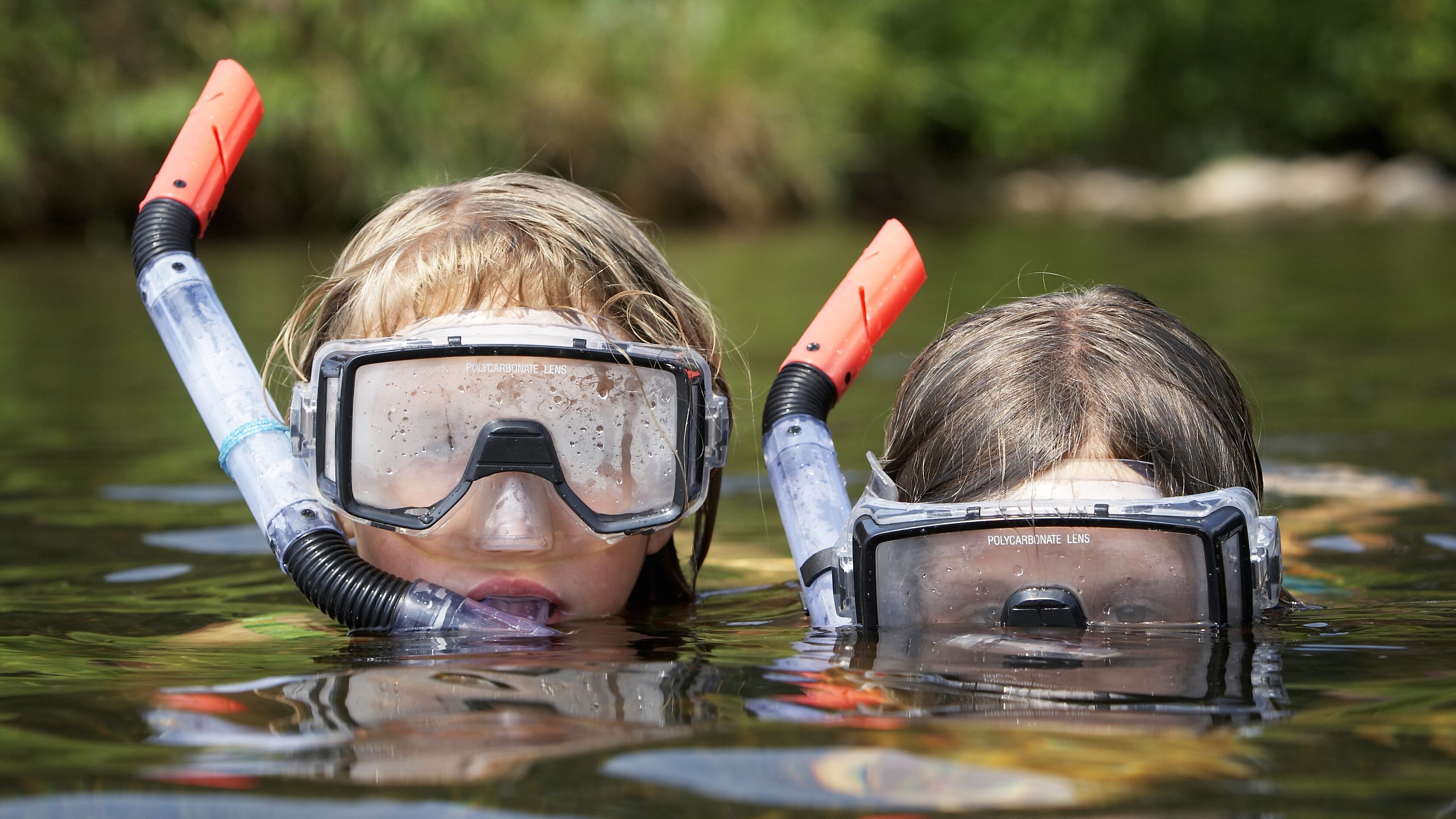Send your question to Umbra!
Q. Summer is coming, so I wonder if the river near my house (the famous Kamogawa) is safe for my kids to splash in. There is a garbage incinerator upstream, though not directly on the river, and the operators *swear* it does not leak. Is there a water testing kit? What kinds of things would I want to test for? And what kinds of safety limits would I want to look for? It does not have to be drinking-water quality, just safe enough to stick their little feet and hands in.
Gabi
Kyoto, Japan
A. Dearest Gabi,
You’ve just officially made it Water Week here at Ask Umbra. On Monday, we waded into what kind of substances we can safely put in the water; today, let’s address whether or not we can put ourselves in as well.
I hope you’ll forgive me for answering your question broadly. I don’t know how clean the Kamogawa is, nor will my expense account cover phone calls to Japan to check. But I can share some information I hope will be useful to you and anyone else longing for a warm-weather dip in a local waterway.
When water-quality monitors talk about a lake or river being safe for swimming (or splashing), they’re almost always talking about bacteria — whether or not there is any, and in what numbers. Specifically, we’re concerned about the infamous E. coli: Not because it’s dangerous in and of itself (most strains aren’t), but because it’s a good indicator that other, nastier bugs are invisibly doing the backstroke in there. Why? E. coli is commonly found in human and animal poop — so if it’s in the water, then sewage probably is, too.
This doesn’t necessarily mean the local sewage treatment plant is overflowing into the river (though it might). High E. coli counts also often come from stormwater runoff, which washes pet waste and bird poop, plus oil, fertilizer, trash, and pesticides into streams and lakes. No matter the source, we should be concerned about the presence of bacteria because it can make us sick, and kids are especially at risk. And you don’t have to drink the water to come down with a case of Kamogawa’s revenge: Open cuts can admit nasty bacteria, and just getting the bugs on your skin can eventually transport them into your mouth.
Many agencies here in the States sample the water regularly, particularly at popular swimming spots, and publish the results. These can usually be found through a town or county environment department; a little Googling should point you in the right direction. Failing that, there are some consumer water-testing kits on the market; the Vermont Health Department sells one, for example, and some labs offer kits online. Becky Hammer, a water attorney for the Natural Resources Defense Council, tests for E. coli as a volunteer for a water-quality project near her Virginia home, and recommends checking to see if your local authorities have a similar program. Any lab should be able to tell you what the safe limits for bacteria are and whether or not your river exceeds them.
Industrial and chemical pollution of the sort you might get from a negligent factory upstream is another matter, Gabi. As far as I can tell, detecting this kind of contamination is beyond your typical citizen-scientist. A funky smell, sludgy water, an oil slick, or lots of dead fish can tip you off that something is amiss, but Hammer recommends checking with those local water-quality officials for a more definitive answer.
If you’ve done your due diligence and decide it’s OK for the kids to wade and splash a bit, following these don’ts won’t hurt, either.
- Don’t let the kiddos put their heads underwater.
- Don’t go in after heavy rains, as that’s when stormwater runoff makes high bacterial counts most likely.
- Don’t swim or wade near or downstream of storm drains.
- Don’t let the kids get in if they have open wounds or scrapes.
- Don’t forget to wash their little hands and feet when you’re done.
Happy researching, Gabi, and I do hope you turn up good news about your lovely river. I hear it gets hot in Kyoto come summertime.
Horseplayfully,
Umbra



